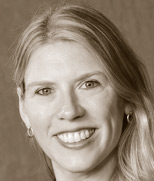Description:
There's theory, fiction, and fantasy. . .and then there's real life. Life's lessons—successes and failures alike—have much to teach us. Since there is only so much that one person can experience in a given time, learning how a company or team has succeeded with a new initiative, implemented a new language, or reconfigured their architecture is both fascinating and incredibly enlightening—and so is hearing about their failures. The In Real Life track at OSCON brings you war stories from the front lines. In this related online conference, Heather Migliorisi, Jennifer Marsman, and Ed Finkler share their experience and offer practical takeaways you can apply to your own projects. Come ready with your questions.
Open source is the fuel that runs the technology we use to solve many of the problems we face every day. These projects are amazing, heavily distributed, and loved by many. Heather Migliorisi explains how they can be made even better when accessibility is added into the open source mix. Heather covers topics including:
- Quick and easy fixes you can do right now (contrast, colors, and :focus)
- Common mistakes we make (images, icons, placeholder text versus labels, semantic faux pas, and roles)
- How to handle forms and errors
- How to make accessible SVGs
- Proposed features in the W3C pipeline
- Testing techniques and automation
- How to ensure standards are understood and implemented
Hadoop on Azure: Microsoft's open source journey with big data
Jennifer Marsman
In recent years, Microsoft's culture has grown to embrace the open source world. Jennifer Marsman shares the cultural journey undertaken by Microsoft's big data team, which provides Hadoop on Azure. Jennifer explains why the team decided to use open source software (Apache Hadoop) instead of building their own solution, what they learned, mistakes they made, how they've grown, and how OSS is shaping the investments they make today.
Stronger than fear: Mental health in the developer community
Ed Finkler
Mental disorders are the largest contributors to disease burden in North America, but the developer community and those who employ developers are afraid to face the problem head-on. Ed Finkler examines the state of mental health awareness in the developer workplace and explores why most developers feel it isn't safe to talk about mental health and what we can do to change the culture and save lives. Ed outlines five things you can do to make your workplace safer for those dealing with mental health disorders.



